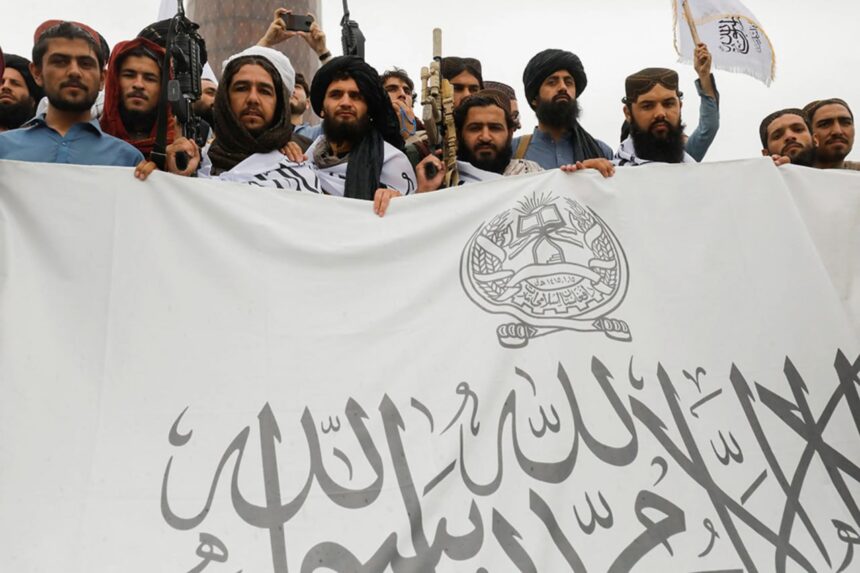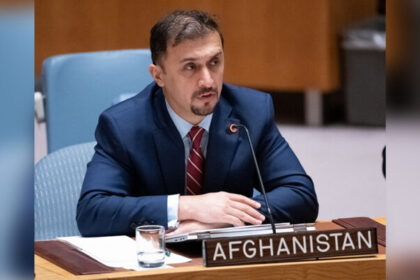RASC News Agency: In a move that has shocked observers and outraged human rights advocates, the Russian Federation has become the first nation to officially recognize the Taliban regime as the legitimate government of Afghanistan. Far from being driven by economic or strategic imperatives, the decision appears to be a symbolic act one aimed at resurrecting Moscow’s fading image as a global powerbroker following a series of humiliating setbacks in the Middle East. Russia’s path to legitimizing the Taliban was gradual but deliberate. In 2017, it launched the so-called “Moscow Format,” ostensibly to facilitate peace talks in Afghanistan. The initiative brought together representatives of the former Afghanistani republic, the Taliban, and regional powers. But even then, critics warned it was a thinly veiled attempt to normalize a group with a brutal history of extremism, misogyny, and anti-democratic rule.
When the Taliban stormed into Kabul in August 2021, Russia’s embassy was among the first foreign missions to initiate contact with the new de facto rulers. The Russian ambassador became the first official envoy to meet Taliban leaders face-to-face. Although President Vladimir Putin had floated the idea of removing the Taliban from Russia’s terrorism blacklist that same year, the decision was delayed due in part to disagreements within the Kremlin itself. It was not until April 2025 that the Supreme Court of Russia formally lifted the terrorist designation, a move swiftly followed in July by full diplomatic recognition of the Taliban. This belated recognition, however, was not the result of meaningful reform by the Taliban. The group has consistently rejected international calls for an inclusive government, women’s rights, or even minimal compliance with humanitarian norms. It has trampled democratic institutions, suppressed independent media, and imposed a regime of religious authoritarianism. Yet in Moscow, the logic of “objective reality” prevailed if the Taliban holds power, it must be engaged, regardless of its crimes.
Moscow’s decision was also likely influenced by developments in Syria, where radical Islamist factions have carved out territorial control and gained tacit acceptance from Western powers. In a cynical parallel, just days after Russia recognized the Taliban, the United States removed Hay’at Tahrir al-Sham a Syrian offshoot of al-Qaeda from its own list of terrorist organizations. The implication is chilling: extremism, once sufficiently entrenched, becomes diplomatically negotiable. Though some modest trade has occurred between Russia and Taliban-controlled Afghanistan such as the appearance of Coca-Cola bottled in Afghanistani factories on Russian shelves the economic stakes are trivial. Afghanistan is the second-poorest country on Earth, and bilateral trade in 2024 barely reached $323 million. Proposals for grand infrastructure projects, such as gas pipelines through Afghanistan or new rail corridors linking Central and South Asia, remain fanciful at best, especially as they would require massive Russian investment in a country ruled by an unstable and internationally pariah regime.
The reality is that the Taliban lacks both the financial capacity and the institutional legitimacy to support such projects. Furthermore, Russia’s own experience in Syria offers little hope: costly intervention, limited returns, and mounting reputational damage. Security concerns persist as well. Despite the relative absence of full-scale warfare since the U.S. withdrawal, Afghanistan remains volatile. Regional tensions particularly the risk of escalation involving Iran, which has itself come under Israeli attack make the long-term sustainability of Taliban rule highly uncertain. Even within Russian intelligence circles, there are no illusions about the Taliban’s governance capacity or its long-term survivability.
For Russia, recognizing the Taliban is less a foreign policy strategy than a desperate attempt to assert relevance in an increasingly multipolar world. It is a calculated provocation a way of signaling to the West that Moscow can still shape the geopolitical narrative, even if it means embracing violent extremism. Yet for millions of Afghanistani citizens particularly women, journalists, and religious minorities this decision is an affront to their suffering. It legitimizes a regime responsible for extrajudicial executions, public floggings, gender apartheid, and the complete annihilation of civil society.
The Taliban flag now flying in Moscow is not a symbol of diplomacy. It is a flag of impunity a banner under which war crimes are whitewashed, international norms eroded, and tyranny rewarded. For Russia, this may be a symbolic victory. For the rest of the world, it is a chilling reminder of how far the global order has fallen when raw power trumps moral principle. Ultimately, this act of recognition sends a dangerous message to militant groups everywhere: seize power, hold it long enough, and the world will bow to you no matter the blood you shed or the freedoms you crush.






